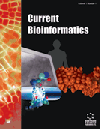
Full text loading...
Multi-omics data integration has transformed personalized medicine, providing a comprehensive understanding of disease mechanisms and informed precision therapeutic options. Multi-omics data generated for the same samples/patients can help in getting insights into the flow of biological information at several levels, thereby providing in-depth information regarding the molecular mechanisms underlying pathological conditions. Multi-omics integration plays a pivotal role in personalized medicine by providing comprehensive insights into the complex biological systems of individual patients. This review provides a comprehensive account of the current and future progress brought into multi-omics methodologies, promising to refine diagnostics and therapeutic strategy by integrating genomic, transcriptomic analyses, proteomics approaches and metabolome screens.
A literature search was performed in PubMed using keywords like genomics, proteomics, transcriptomics, metabolomics, multi-omics, and precision medicine to identify published research articles. A thorough review of all results was then conducted, and their results and conclusions were compiled and summarized.
By analyzing various omics layers, such as genomics, transcriptomics, proteomics, and metabolomics, multi-omics approaches enable the identification of patient-specific molecular traits and the discovery of new clinical therapeutics for diseases. Integration of various data types augments diagnostics, optimizes therapeutic regimens and supports personalized medicine according to an individual patient profile.
Integration of multi-omics data and its applications in various fields, such as cancer research, helps in optimizing patient-specific treatment and improvement of patient health. With time, as these technologies reach more people, they stand to democratize precision medicine and hopefully bridge health disparities. In conclusion, the present review highlights multiomics data integration as a transformative step towards personalized medicine and ultimately changing patient care from empirical-based to precision or individualized.

Article metrics loading...

Full text loading...
References


Data & Media loading...

